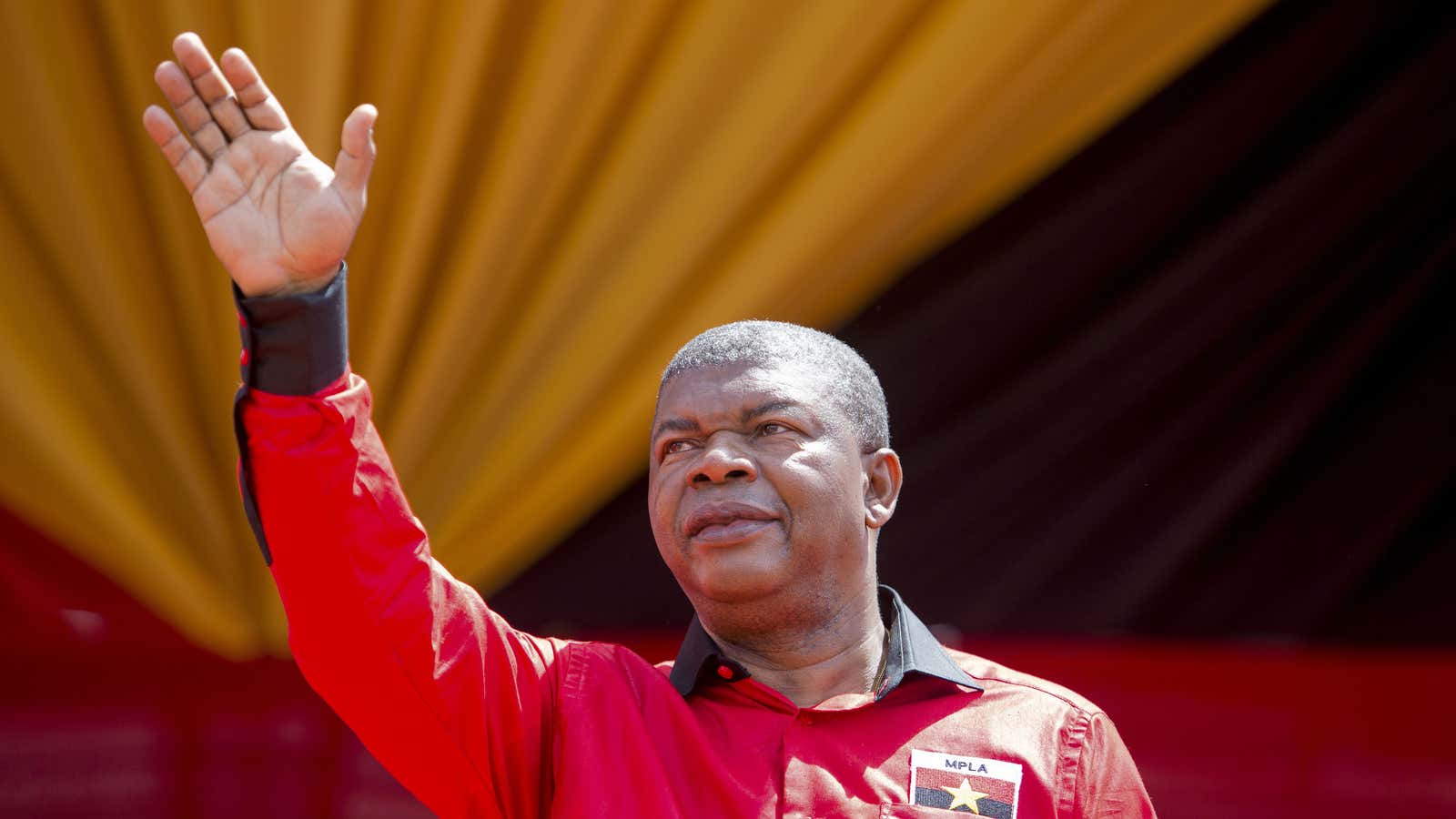Angola’s president João Lourenço has sacked the son of former president José Eduardo dos Santos as the head of the country’s $5 billion sovereign wealth fund.
José Filomeno dos Santos was fired following an external inquiry into the fund’s performance and governance. Carlos Alberto Lopes, a former finance minister, has been appointed as the new board chairman.
The move is the latest in a style game of musical chairs that has been unfolding since president Lourenço came to power in Aug. 2017. After almost four decades in power, dos Santos agreed to step down last year and not seek re-election, with some citing health issues for his departure. Lourenço, a former defense minister and a stalwart of the ruling People’s Movement for the Liberation of Angola (MPLA), was elected and sworn in September.
Since then, the 63-year-old leader has taken surprise moves aimed at wresting power from his predecessor, vowing to fight corruption and to take on entrenched and vested interests in the ruling party. Barely two months into his reign, Lourenço sacked Isabel dos Santos as head of Angola’s state oil company, Sonangol. The daughter of ex-president dos Santos, Isabel is Africa’s richest woman with an estimated net worth of $2.5 billion, according to Bloomberg. In recent weeks she has been fighting allegations that she and her family misappropriated government funds.
Angola’s sovereign fund has come under scrutiny since the Paradise Papers showed that the Swiss-Angolan entrepreneur Jean-Claude Bastos de Morais, who was entrusted to manage some of the fund’s cash, used it to invest in his own projects. The leaked papers documented the offshore transactions of some of the world’s biggest corporations and wealthiest people. The fund denied any of the allegations, saying all its operations were all legitimate.
Despite his recent moves, observers say Lourenço will have to do more to combat family monopolies and make true of his promises. As one of Africa’s second largest oil exporter, the southern Africa nation’s economy has taken a hit as commodity prices declined since mid-2014. This has reduced government revenues and caused gross domestic product growth to decelerate from an annual average of 10.3% from 2004 to 2014, to only 1.5% in 2015, according to the World Bank.
